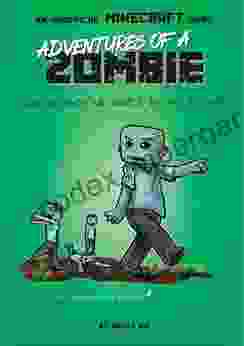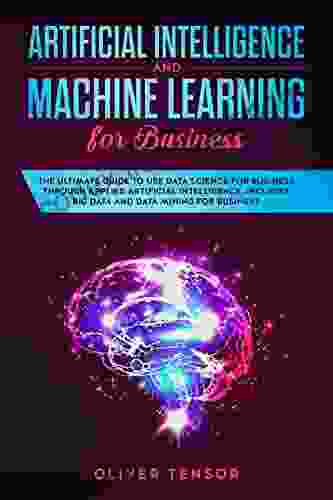From the Encyclopaedia to Wikipedia: A Journey Through the History of Knowledge

The history of knowledge is a long and winding one, from the first written records to the vast digital libraries of today. In this article, we'll take a journey through some of the key milestones in the evolution of knowledge, from the ancient encyclopaedias to the modern-day Wikipedia.
4.7 out of 5
| Language | : | English |
| File size | : | 3484 KB |
| Text-to-Speech | : | Enabled |
| Screen Reader | : | Supported |
| Enhanced typesetting | : | Enabled |
| Word Wise | : | Enabled |
| Lending | : | Enabled |
| Print length | : | 484 pages |
The Ancient Encyclopaedias
The first encyclopaedias were compiled in ancient China, Greece, and Rome. These works were typically collections of knowledge on a wide range of subjects, from history and geography to medicine and astronomy.
One of the most famous ancient encyclopaedias is the Natural History, written by the Roman scholar Pliny the Elder in the 1st century AD. This work contains a vast amount of information on the natural world, including animals, plants, minerals, and weather.
Another important ancient encyclopaedia is the Etymologiae, written by the Spanish scholar Isidore of Seville in the 7th century AD. This work is a collection of knowledge on a wide range of subjects, including grammar, rhetoric, history, and science.
The Medieval Encyclopaedias
During the Middle Ages, encyclopaedias continued to be compiled in Europe. These works were typically written by monks and scholars, and they often contained a mix of religious and secular knowledge.
One of the most famous medieval encyclopaedias is the Speculum Maius, written by the English scholar Vincent of Beauvais in the 13th century AD. This work is a vast collection of knowledge on a wide range of subjects, including theology, philosophy, science, and history.
Another important medieval encyclopaedia is the Summa Theologica, written by the Italian scholar Thomas Aquinas in the 13th century AD. This work is a systematic exposition of Christian theology, and it is one of the most influential works of philosophy ever written.
The Renaissance Encyclopaedias
During the Renaissance, there was a renewed interest in classical learning, and this led to the compilation of new encyclopaedias. These works were typically written by humanists, and they often contained a mix of classical and medieval knowledge.
One of the most famous Renaissance encyclopaedias is the Naturalis Historiae, written by the Italian scholar Pliny the Younger in the 15th century AD. This work is a vast collection of knowledge on the natural world, and it is one of the most important works of science ever written.
Another important Renaissance encyclopaedia is the De Proprietatibus Rerum, written by the English scholar Bartholomew the Englishman in the 13th century AD. This work is a collection of knowledge on a wide range of subjects, including animals, plants, minerals, and weather.
The Enlightenment Encyclopaedias
During the Enlightenment, there was a new emphasis on reason and scientific inquiry, and this led to the compilation of new encyclopaedias. These works were typically written by scholars and scientists, and they often contained a mix of scientific and philosophical knowledge.
One of the most famous Enlightenment encyclopaedias is the Encyclopédie, written by a group of French scholars in the 18th century AD. This work is a vast collection of knowledge on a wide range of subjects, including science, philosophy, and history.
Another important Enlightenment encyclopaedia is the Britannica, written by a group of Scottish scholars in the 18th century AD. This work is a vast collection of knowledge on a wide range of subjects, and it is one of the most comprehensive encyclopaedias ever compiled.
The Modern Encyclopaedias
In the 19th century AD, the development of new printing technologies led to the production of new encyclopaedias that were more accessible to the general public. These works were typically written by scholars and journalists, and they often contained a mix of popular and scholarly knowledge.
One of the most famous modern encyclopaedias is the Everyman's Encyclopaedia, written by a group of British scholars in the early 20th century AD. This work is a vast collection of knowledge on a wide range of subjects, and it is one of the most popular encyclopaedias ever published.
Another important modern encyclopaedia is the Encyclopaedia Britannica, written by a group of American scholars in the 19th century AD. This work is a vast collection of knowledge on a wide range of subjects, and it is one of the most comprehensive encyclopaedias ever compiled.
The Digital Encyclopaedias
In the late 20th century AD, the development of digital technologies led to the creation of new encyclopaedias that were available online. These works were typically written by scholars and journalists, and they often contained a mix of popular and scholarly knowledge.
One of the most famous digital encyclopaedias is Wikipedia, written by a group of volunteers from around the world. This work is a vast collection of knowledge on a wide range of subjects, and it is one of the most popular websites on the Internet.
Another important digital encyclopaedia is the Encyclopedia of Life, written by a group of scientists from around the world. This work is a vast collection of knowledge on the natural world, and it is one of the most comprehensive encyclopaedias ever compiled.
The Future of Knowledge
The future of knowledge is uncertain, but it is clear that digital technologies will continue to play a major role. We can expect to see new encyclopaedias that are more accessible, more comprehensive, and more up-to-date than ever before.
We can also expect to see new ways of accessing and using knowledge. For example, we may be able to use artificial intelligence to help us find the information we need, and we may be able to use virtual reality to experience knowledge in new ways.
The future of knowledge is bright, and we can expect to see new and exciting developments in the years to come.
4.7 out of 5
| Language | : | English |
| File size | : | 3484 KB |
| Text-to-Speech | : | Enabled |
| Screen Reader | : | Supported |
| Enhanced typesetting | : | Enabled |
| Word Wise | : | Enabled |
| Lending | : | Enabled |
| Print length | : | 484 pages |
Do you want to contribute by writing guest posts on this blog?
Please contact us and send us a resume of previous articles that you have written.
 Book
Book Novel
Novel Page
Page Chapter
Chapter Text
Text Story
Story Genre
Genre Reader
Reader Library
Library Paperback
Paperback E-book
E-book Magazine
Magazine Newspaper
Newspaper Paragraph
Paragraph Sentence
Sentence Bookmark
Bookmark Shelf
Shelf Glossary
Glossary Bibliography
Bibliography Foreword
Foreword Preface
Preface Synopsis
Synopsis Annotation
Annotation Footnote
Footnote Manuscript
Manuscript Scroll
Scroll Codex
Codex Tome
Tome Bestseller
Bestseller Classics
Classics Library card
Library card Narrative
Narrative Biography
Biography Autobiography
Autobiography Memoir
Memoir Reference
Reference Encyclopedia
Encyclopedia Bruce Vandervort
Bruce Vandervort Brian F Haara
Brian F Haara Brenda Williams
Brenda Williams David Shoemaker
David Shoemaker Daniel A Farber
Daniel A Farber Magnus Hastings
Magnus Hastings Edward Hampshire
Edward Hampshire John Oleszkiewicz
John Oleszkiewicz Byron Babbish
Byron Babbish Bukkyo Dendo Kyokai
Bukkyo Dendo Kyokai Brie Bella
Brie Bella Brian L Knight
Brian L Knight Hassane Benziane
Hassane Benziane Brink Lindsey
Brink Lindsey Brian Forschner
Brian Forschner Michael E Shay
Michael E Shay Maureen Trudelle Schwarz
Maureen Trudelle Schwarz Volume 34 Issue 8 Edition
Volume 34 Issue 8 Edition Brian Brown
Brian Brown Brian Fried
Brian Fried
Light bulbAdvertise smarter! Our strategic ad space ensures maximum exposure. Reserve your spot today!
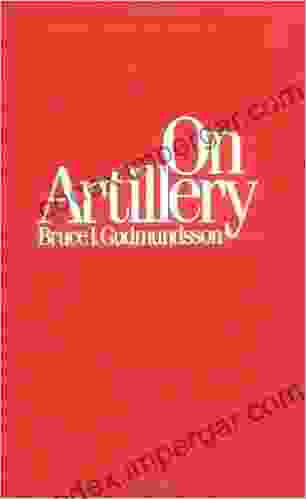
 Chuck MitchellUncover the Secrets of Artillery Warfare: A Review of Bruce Gudmundsson's...
Chuck MitchellUncover the Secrets of Artillery Warfare: A Review of Bruce Gudmundsson's... Marcus BellFollow ·2.3k
Marcus BellFollow ·2.3k Tim ReedFollow ·18.3k
Tim ReedFollow ·18.3k Jan MitchellFollow ·18.8k
Jan MitchellFollow ·18.8k Forrest BlairFollow ·9.7k
Forrest BlairFollow ·9.7k Ismael HayesFollow ·8.6k
Ismael HayesFollow ·8.6k Stanley BellFollow ·16.2k
Stanley BellFollow ·16.2k Isaias BlairFollow ·11.3k
Isaias BlairFollow ·11.3k Ashton ReedFollow ·18.2k
Ashton ReedFollow ·18.2k
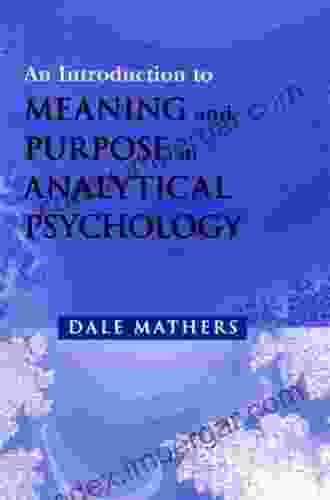
 Gary Cox
Gary CoxUnlocking Meaning and Purpose in Life: An Exploration of...
In an increasingly...

 Eric Hayes
Eric HayesMemoirs of the Early Pioneer Settlers of Ohio Illustrated
A Window into the Lives of Courageous...
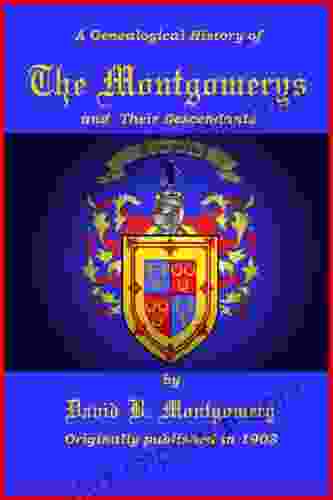
 J.R.R. Tolkien
J.R.R. TolkienThe Montgomerys and Their Descendants: A Saga of Courage,...
Prepare to be...
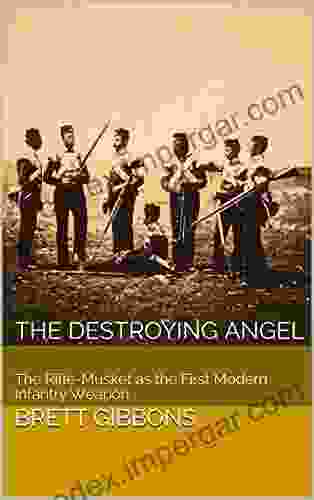
 Avery Simmons
Avery SimmonsThe Rifle Musket: The Dawn of Modern Infantry Warfare
: The rifle musket, a revolutionary...

 Jesse Bell
Jesse BellUnlock the Power of Excel with VBA and Macros: A...
Microsoft Excel is a powerful spreadsheet...
4.7 out of 5
| Language | : | English |
| File size | : | 3484 KB |
| Text-to-Speech | : | Enabled |
| Screen Reader | : | Supported |
| Enhanced typesetting | : | Enabled |
| Word Wise | : | Enabled |
| Lending | : | Enabled |
| Print length | : | 484 pages |






